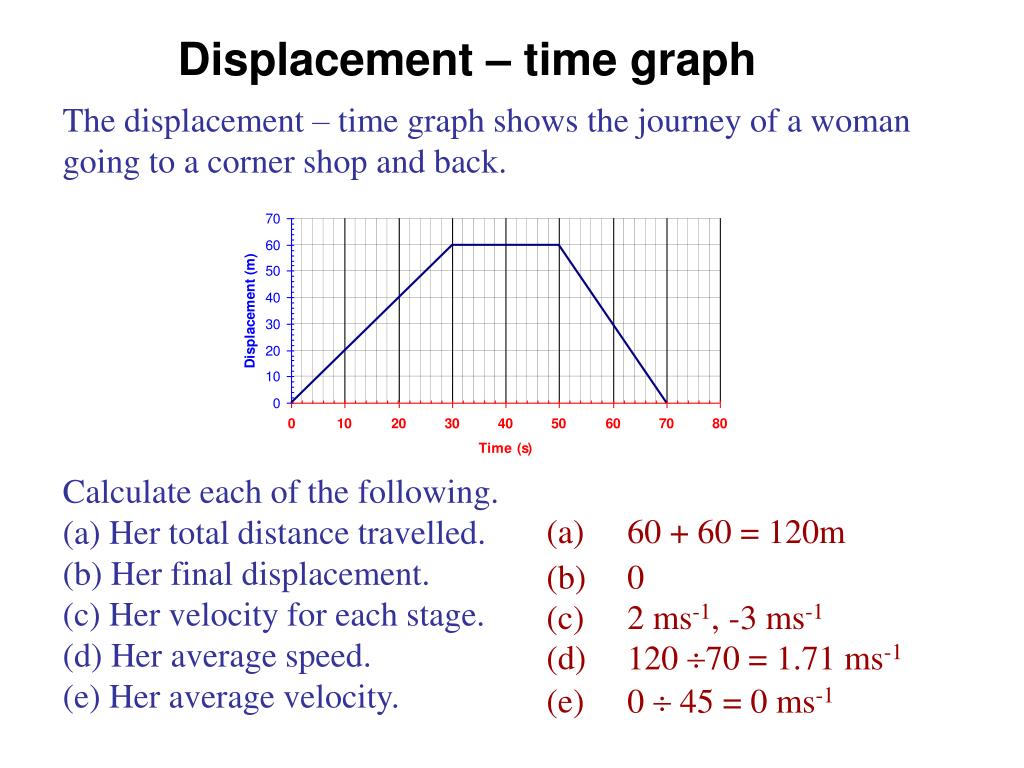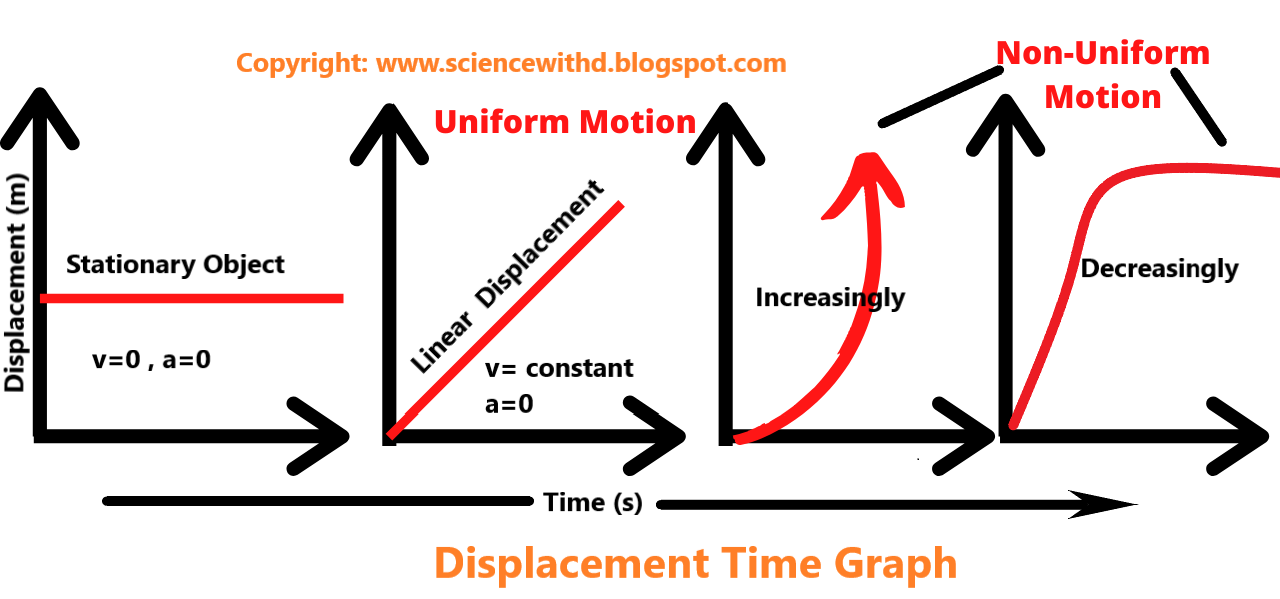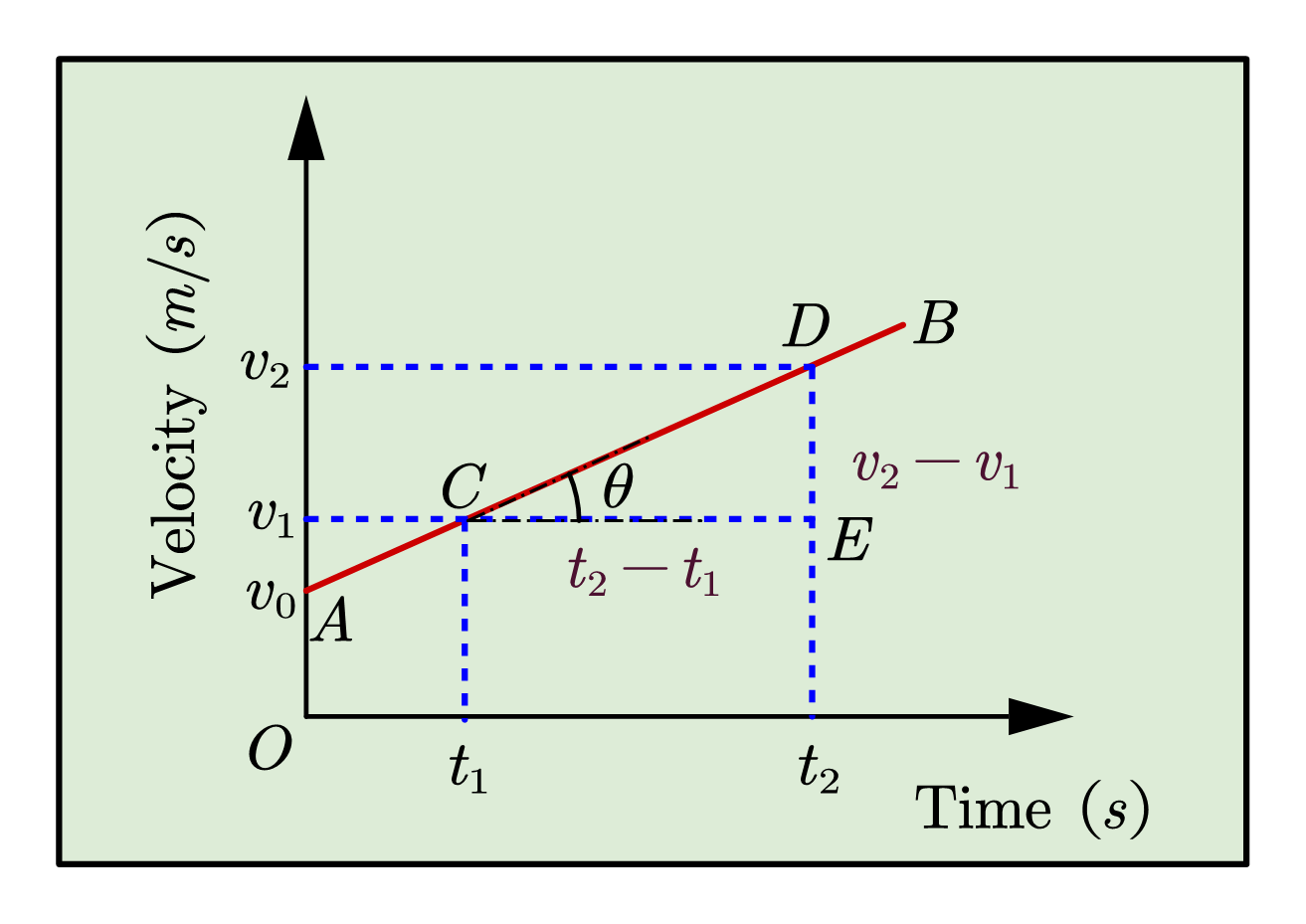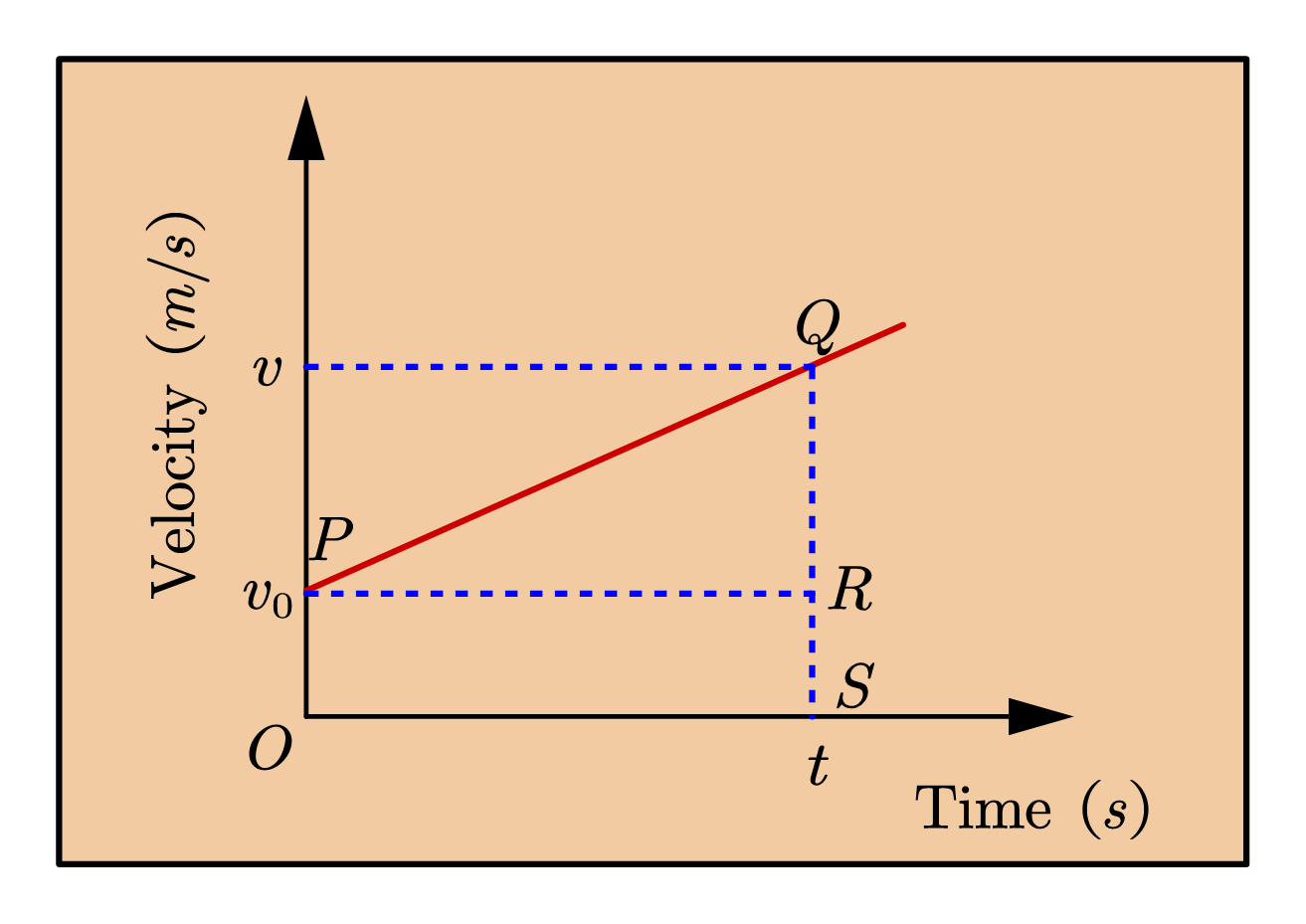Displacement from the Velocity vs. Time Graph YouTube

Displacement from the Velocity vs. Time Graph YouTube
A velocity-time graph is a graph between the time taken and the velocity acquired by the moving object during that time. Here time taken is plotted along the x-axis and velocity acquired is plotted along the y-axis we know that displacement of an object is the product of velocity and time i.e.,\(d=v\times t\)
Velocity Time Graph And Position Time Graphs
The first answer was correct, displacement does need a quantity and direction. Displacement can be calculated by measuring the final distance away from a point, and then subtracting the initial distance. Displacement is key when determining velocity (which is also a vector). Velocity = displacement/time whereas speed is distance/time.

Distance, velocity, time graphs SSDD Problems
The displacement close displacement A distance measured in a specified direction. of an object can be calculated from the area under a velocity-time graph. The area under the graph can be.

how to find displacement in velocity time graph Brainly.in
It works because displacement is the product of velocity and time. And in our graph when you multiply velocity and time you're basically multiplying two lengths in our graph and that gives us the area. And so that's the secret to calculating displacements and from a velocity time graph.

PPT Displacement time graph PowerPoint Presentation, free download ID5230247
The slope of a velocity graph represents the acceleration of the object. So, the value of the slope at a particular time represents the acceleration of the object at that instant. The slope of a velocity graph will be given by the following formula: slope = rise run = v 2 − v 1 t 2 − t 1 = Δ v Δ t. v ( m / s) t ( s) r i s e r u n t 1 t 2.

CBSE CLASS 9TH SCIENCE(PHYSICS) CHAPTER MOTION (Graphical ) Part2
Its velocity v as a function of time t is given in the graph below where rightwards is the positive velocity direction. A set of black coordinate axes are given with the vertical axis labeled "v (m/s)" and the horizontal axes labeled "t (s)".

Velocity Time Graph Displacement ChazknoeAlvarado
Displacement-time graphs. Save Copy. Log InorSign Up. Explore: Try using the sliders for initial postion, s_initial, initial velocity, u, and acceleration, a. How does each one change the graph 1. s initial = 0. 2. u = 1 8. 3. a = 0. 4. Turn on the example graphs below. Each of dashed red and blue curves represent the 1D displacement of an.

M08 Finding velocity from a displacement time graph YouTube
The Velocity-Time Graphs: Displacement Calculations Video Tutorial describes the significance of area on a velocity-time graph. Details about how to calculate the area between the line and the time axis are explained and modeled through numerous examples. Common pitfalls are discussed and strategies for analyzing complex situations are described.

How to calculate the displacement from a velocity vs time graph YouTube
The displacement-time graph of a moving object tells the distance covered by a moving object with a change in time. The displacement is a vector quantity. The slope or the gradient of this graph indicates the object's velocity. The displacement-time graph is also known as the position-time graph, which represents the motion of an object.

Question Video Finding the Displacement of a Particle Using a VelocityTime Graph Nagwa
Question Video: Determining Displacement from a Velocity-Time Graph. The velocity-time graph shows the change in the velocity of a person walking in the time interval from 𝑡 = 0 s to 𝑡 = 6 s. The person's starting point is their position when 𝑡 = 0 s. What is the person's displacement from their starting point after 3 seconds?

Displacementtime and Velocitytime Graph of Ball Thrown Up / Ball Dropped Graphing, Physics
The displacement of an object is defined as how far the object is from its initial point. In the displacement time graph, displacement is the dependent variable and is represented on the y-axis, while time is the independent variable and is represented on the x-axis. Displacement time graphs are also known as position-time graphs.

What is Velocity time graph? physicscatalyst's Blog
The gradient of a displacement-time graph is velocity 2.Velocity-timegraphs. Any point on such a graph will have coordinates (t,v), in which v is the velocity after a time t. WorkedExample2. Figure 2 shows the velocity-time graph for the motion of the tennis ball described in example 1. It was thrown into the air with a velocity of 7 m s−1.

What is Velocity time graph? physicscatalyst's Blog
This physics video tutorial explains how to calculate displacement from a velocity-time graph.Physics - Basic Introduction: https.
Velocity Time Graph And Position Time Graphs
The displacement is given by finding the area under the line in the velocity vs. time graph. The acceleration is given by finding the slope of the velocity graph. The instantaneous velocity can just be read off of the graph. To find the average velocity, recall that vavg = Δd Δt = df−d0 tf−t0.

Velocity time graphs (Video) PhysicsTube
The area under a velocity-time graph is equal to the displacement of a moving object; Displacement = Area under a velocity-time graph. Acceleration is any change in the velocity of an object in a given time; As velocity is a vector quantity, this means that if the speed of an object changes, or its direction changes, then it is accelerating. An.

Spectacular Different Types Of Velocity Time Graph Excel Xy Diagram
So the value of the slope at a particular time represents the velocity of the object at that instant. To see why, consider the slope of the position vs. time graph shown below: [Wait, why is the vertical axis called x?] x ( m) t ( s) r i s e r u n t 1 t 2 x 1 x 2. The slope of this position graph is slope = rise run = x 2 − x 1 t 2 − t 1 .